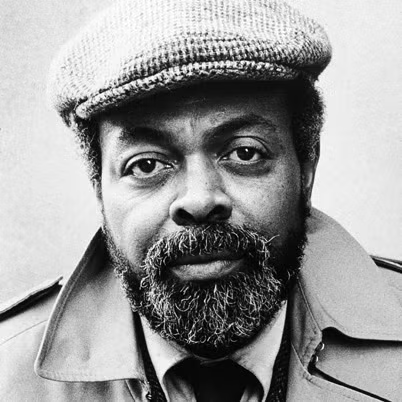
Table of Contents
Who Was Amiri Baraka?
Amiri Baraka, originally named LeRoi Jones, was an influential poet, playwright, and political activist whose work spanned multiple cultural movements in 20th-century America. He initially emerged from the Beat movement but transformed into a prominent voice in Black Nationalism and later Marxism after the assassination of Malcolm X.
Early Life
Born Everett LeRoi Jones on October 7, 1934, in Newark, New Jersey, Baraka developed a passion for poetry and jazz during his high school years. He later attended Howard University, where he changed his name to LeRoi James and earned an English degree in 1954. Shortly after, he joined the United States Air Force. However, his military career ended abruptly with a dishonorable discharge after being found in possession of “inappropriate” texts.
Baraka then moved to Manhattan, immersing himself in the vibrant artistic scene of Greenwich Village. There, he became part of the Beat movement, befriending key literary figures like Allen Ginsberg and Jack Kerouac. He also founded Totem Press, where he published works by leading poets of the time. His first major collection of poetry, Preface to a Twenty Volume Suicide Note, was published in 1961. His 1964 play The Dutchman, a bold examination of racial tensions in America, earned him widespread recognition.
Political Activism
Baraka’s political consciousness deepened after a visit to Cuba, which led him to break from the largely apolitical Beat movement. The 1965 assassination of Malcolm X marked a turning point in his life, after which he severed ties with his past, including his marriage to Hettie Cohen, and adopted the name Amiri Baraka. Embracing Black Nationalism, Baraka moved to Harlem, where he founded the Black Arts Repertory Theatre/School, aimed at promoting African American cultural expression. Though the theater company was short-lived, Baraka continued his work by founding the Spirit House Players upon returning to his hometown of Newark.
In 1968, Baraka converted to Islam and took the name Imamu Amiri Baraka, with “Imamu” meaning “spiritual leader.” However, in 1974, he distanced himself from religious ideology and embraced Marxism, dropping the “Imamu” prefix and aligning his work and activism with class-based politics. Throughout his life, Baraka remained a pivotal figure in the American literary and political landscape, evolving alongside the movements he championed.
Later Life and Legacy of Amiri Baraka
Amiri Baraka was renowned for his bold, confrontational style, with much of his writing sparking controversy and dividing readers. One of his most contentious works, the poem “Somebody Blew Up America,” implied that Israeli and American leaders had prior knowledge of the 9/11 attacks. This poem was widely condemned for being anti-Semitic, and in response to the public backlash, Baraka was removed from his position as New Jersey’s poet laureate.
Throughout his career, Baraka was a prolific author, producing more than 50 books across genres, including fiction, music criticism, essays, short stories, poetry, and plays. His 1984 publication, The Autobiography of LeRoi Jones/Amiri Baraka, remains a notable work that reflects his journey and transformation. Baraka also had an extensive academic career, teaching at institutions such as the New School for Social Research, San Francisco State University, and Yale University. He later became professor emeritus of Africana Studies at the State University of New York at Stony Brook, a position he held for 20 years until his retirement.
Amiri Baraka passed away on January 9, 2014, in Newark, New Jersey, at the age of 79. He was survived by his wife, Amina Baraka, two daughters from his first marriage, and four children from his second. His legacy as a fiercely independent voice in American literature continues to be felt today.
